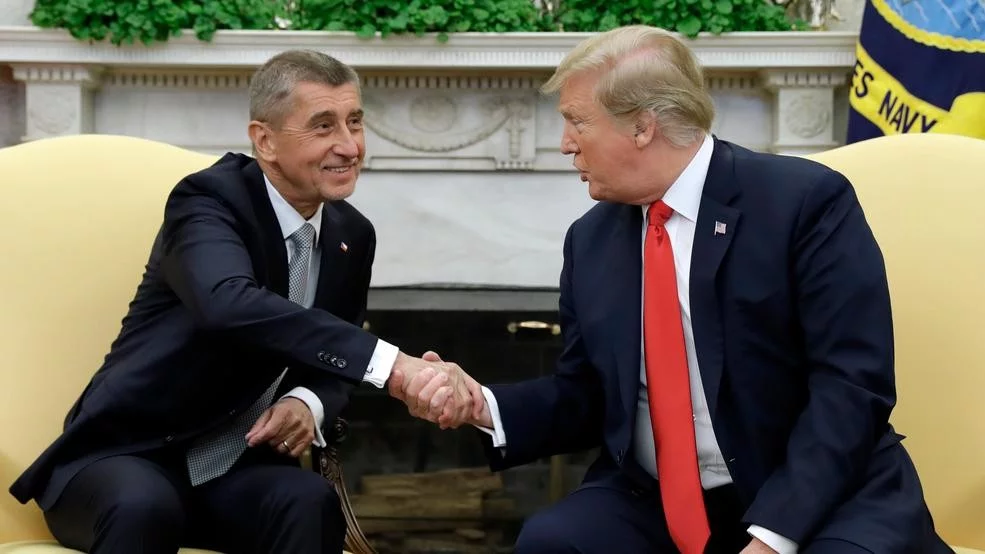Czech Prime Minister Andrej Babis adopted the slogan “Make the Czech Republic great again” in his reelection effort.
But he lost the Czech Republic’s parliamentary election, a surprise development that could mean the end of the populist billionaire’s reign in power.
Babis, like Trump, is a wealthy businessman who rode into office on a nationalist-style campaign.
With all the votes counted, Together, a liberal-conservative three-party coalition, captured 27.8% of the vote, beating Babiš’s ANO (Yes) party, which won 27.1%.
In a second blow to the populists, another centre-left liberal coalition of the Pirate party and STAN, a group of mayors, received 15.6% of the vote to finish third, the statistics office reported.
“The two democratic coalitions have gained a majority and have a chance to form a majority government,” said Petr Fiala, Together’s leader and its candidate for prime minister.
The winning coalition won 71 seats while its partner captured 37 seats to have a comfortable majority of 108 seats.
Babiš won 72 seats, six less than in the 2017 election.
The five opposition parties, which have policies closer to the European Union’s mainstream compared with the populist Babiš, put aside their differences in this election to create the two coalitions, seeking to oust the eurosceptic prime minister from power.
On Saturday night, the two coalitions announced they have signed a memorandum of their will to govern together.
The result appeared to signal a highly symbolic final consignment to historical oblivion for the communists, who ruled the former Czechoslovakia with an iron fist for more than 40 years before being toppled in the 1989 Velvet Revolution, amid the collapse of communism throughout eastern Europe.
Jiří Pehe, director of New York University in Prague and a Czech political analyst, hailed the results as a triumph for liberal democracy and said they signaled the end of the post-communist era.
“We are probably watching the end of Babiš’s era in Czech politics and because he was in large part created politically by Miloš Zeman, with the poor health of Mr Zeman we are probably looking at the end of his era too,” said Pehe. “I would put it together and say it is the end of the post-communist era in Czech politics. It’s a real change.
“The two opposition groupings were formed because they wanted to be sure that liberal democracy would not be under the same attack as in Hungary and Poland. So we are certainly not going in the same direction as those countries.”
Babiš fought a fear-mongering campaign that vowed to protect the Czech Republic from illegal immigrants and involved maligning the EU – whose subsidies have flowed into Agrofert, a giant industrial conglomerate he owns, prompting successive conflict of interest investigations.
In recent weeks, he attempted to deploy Viktor Orbán, Hungary’s far-right prime minister, as a campaign aide, taking him on an electioneering trip to the northern city of Usti nad Labem, where Babiš is a constituency MP.
Babiš is also facing charges of misusing European Union subsidies for a farm he transferred to relatives, including his son.
